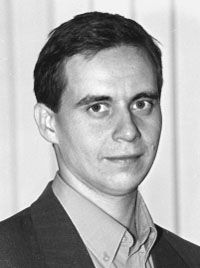“We must learn to think in the European way not only in Brussels,” the President of Ukraine stated the week before last.
To learn the European way of thinking one should obviously agree upon the point that in one country only one foreign policy can exist, without its being divided into the government’s policy, parliament’s, and local ones. And this policy can have only one directional vector. It need not be even pro-Ukrainian, just Ukrainian. Our famous multivector approaches, it seems, can be buried for good along with hopes that somebody will ever become interested in supporting a country that has still not come to a clear understanding of what it actually wants. Indeed, it is at times difficult to realize why, for example, the prime minister, according to diplomatic sources, did not consult with the Foreign Ministry on defining the state’s position on the problem of the project to build a network of gas pipelines from Russia to the West bypassing Ukraine. As a result, his statements in this regard differ from those of the President and other Ukrainian leaders. To think in the European way obviously means in the first place to help yourself. Nobody but Ukraine will be able to elaborate arguments in its negotiations with both the West and Russia, and those must be arguments designed to be at least heard out and studied. Demonstrations of evident weakness and acting second rate can hardly contribute to such arguments. To Europe along with Russia is in essence not a bad slogan. But under certain circumstances based on a certain rate of internal growth it could well turn out that Ukraine itself will lead somebody somewhere. For otherwise a contradiction emerges between the desire to integrate into European and Atlantic structures and to remain in the shadow of Russia, which currently has somewhat different priorities. Relying on one’s own resources would make sense in competition for investment, profitable projects, or access to world markets, but it makes no sense if the existing second rate status of Ukraine is preserved. To think in the European way means, incidentally, to realize the fact that no postwar western society could have achieved anything using only its own domestic resources.
To think European obviously means acknowledging one more interesting fact: our multilevel relations with Russia, Belarus, Georgia — for all their specificity, historical ties, and vital importance for us — cannot differ in principle from relations with Poland, Hungary, or Slovakia. Otherwise everything will wind up in the self-isolation of the “post-Soviet space.” Then it will not much matter whether you think in a European way or not. And where the rules of the game are very different from the European ones because of what might be called specifics of mentality.
To think European obviously is something that could help us understand whether we are really making efforts to become a part of that Europe hitherto unknown to us and still not known us. And, finally, we must define our positions concerning our true priorities.







